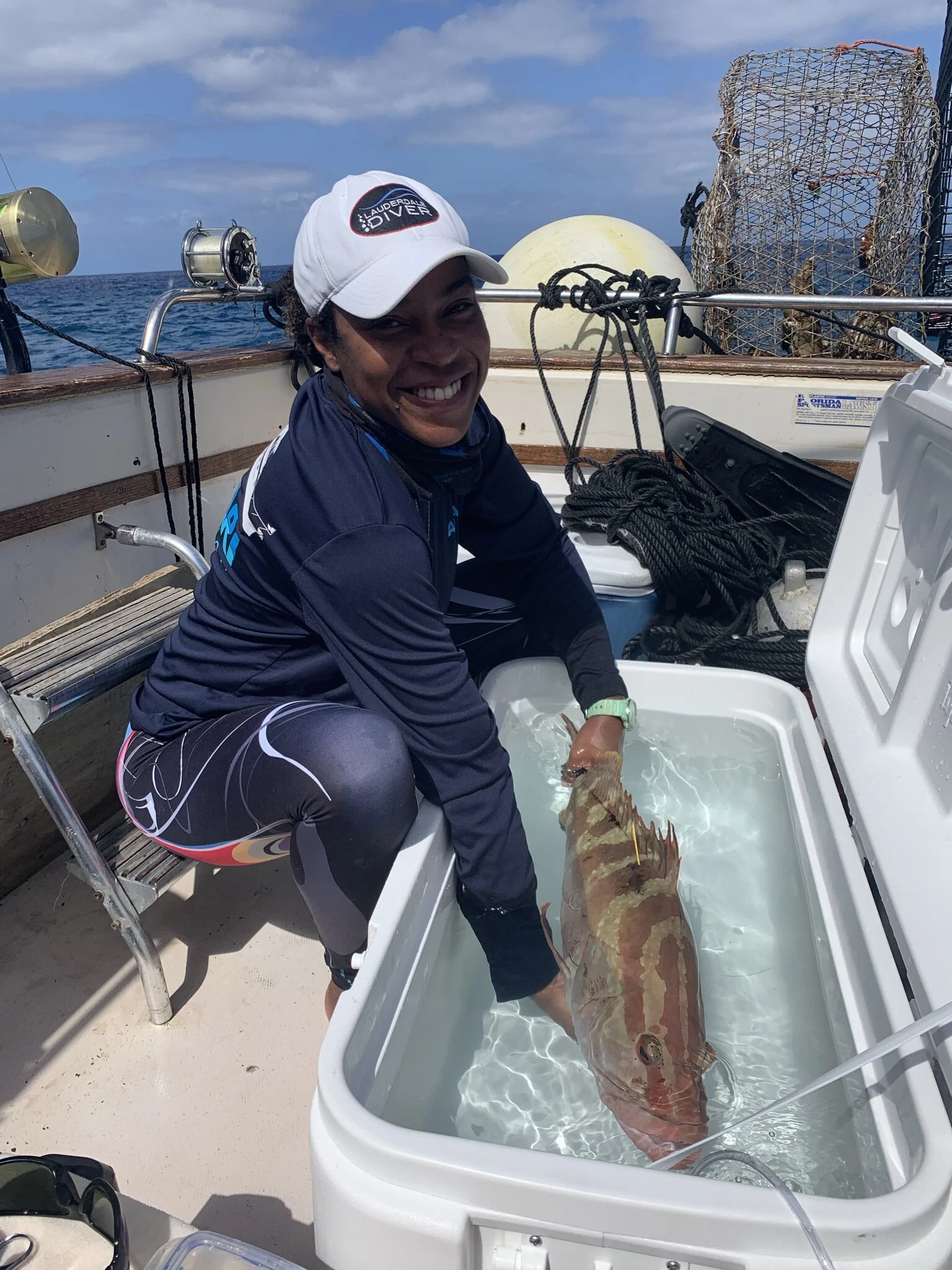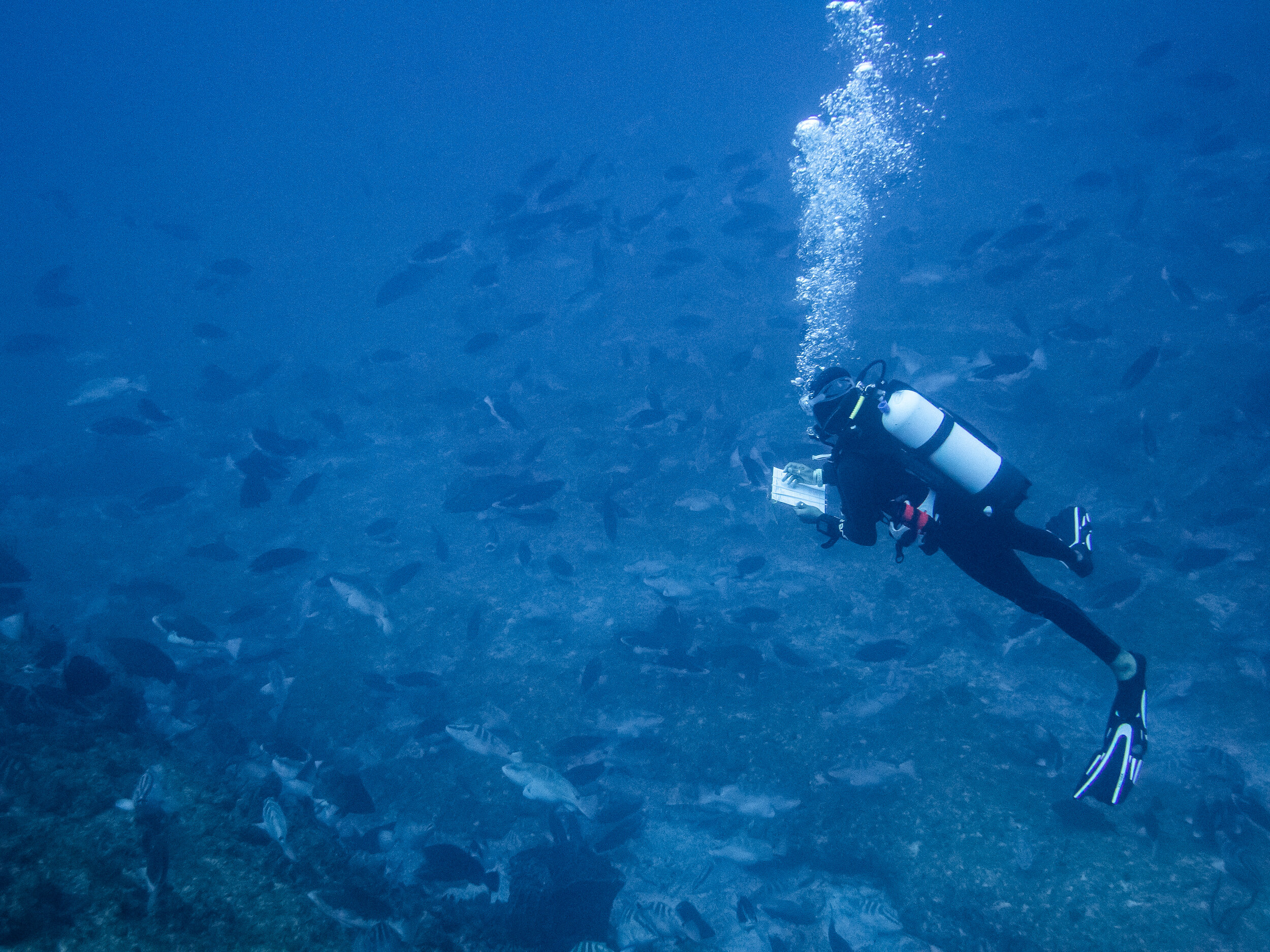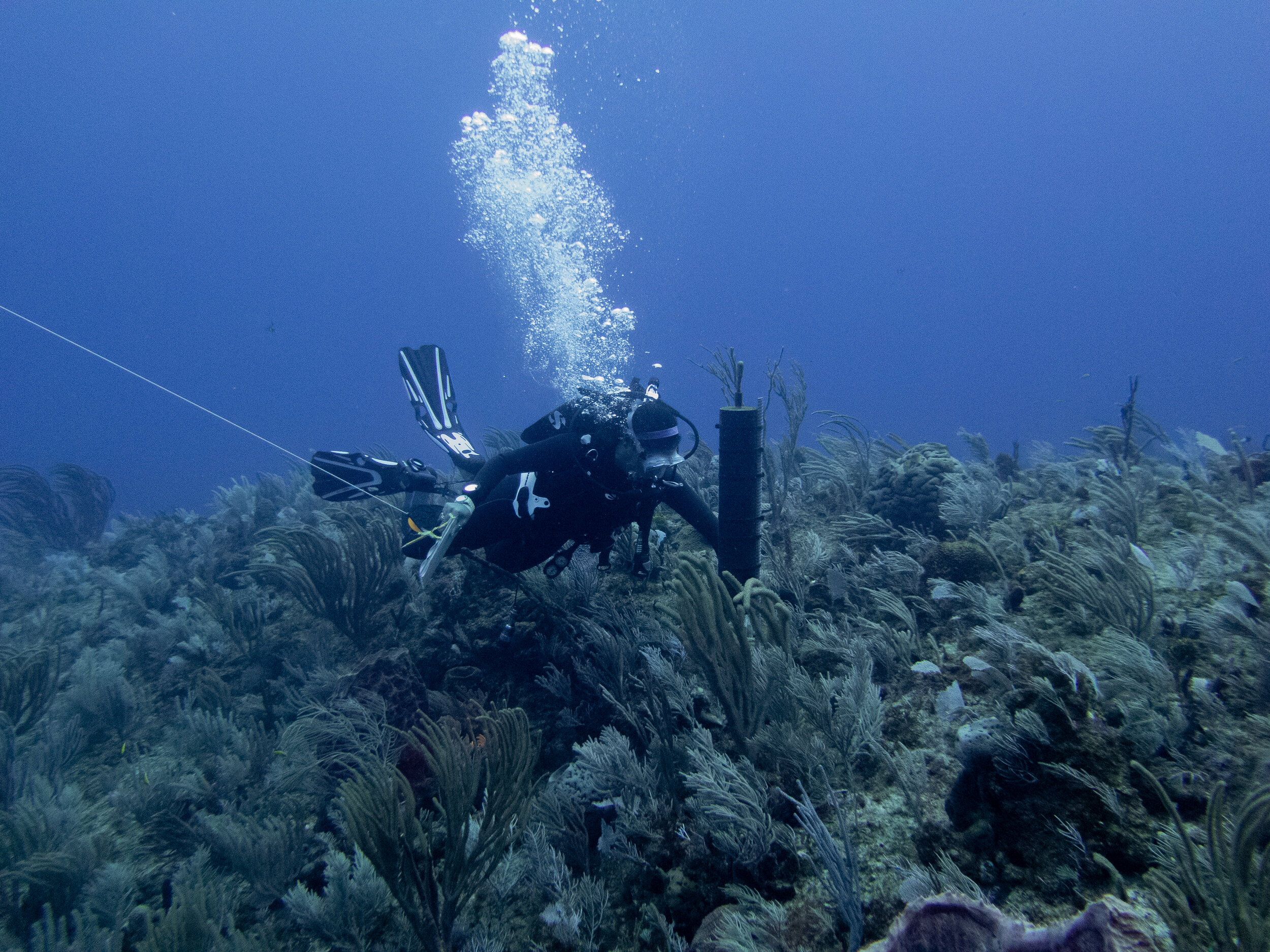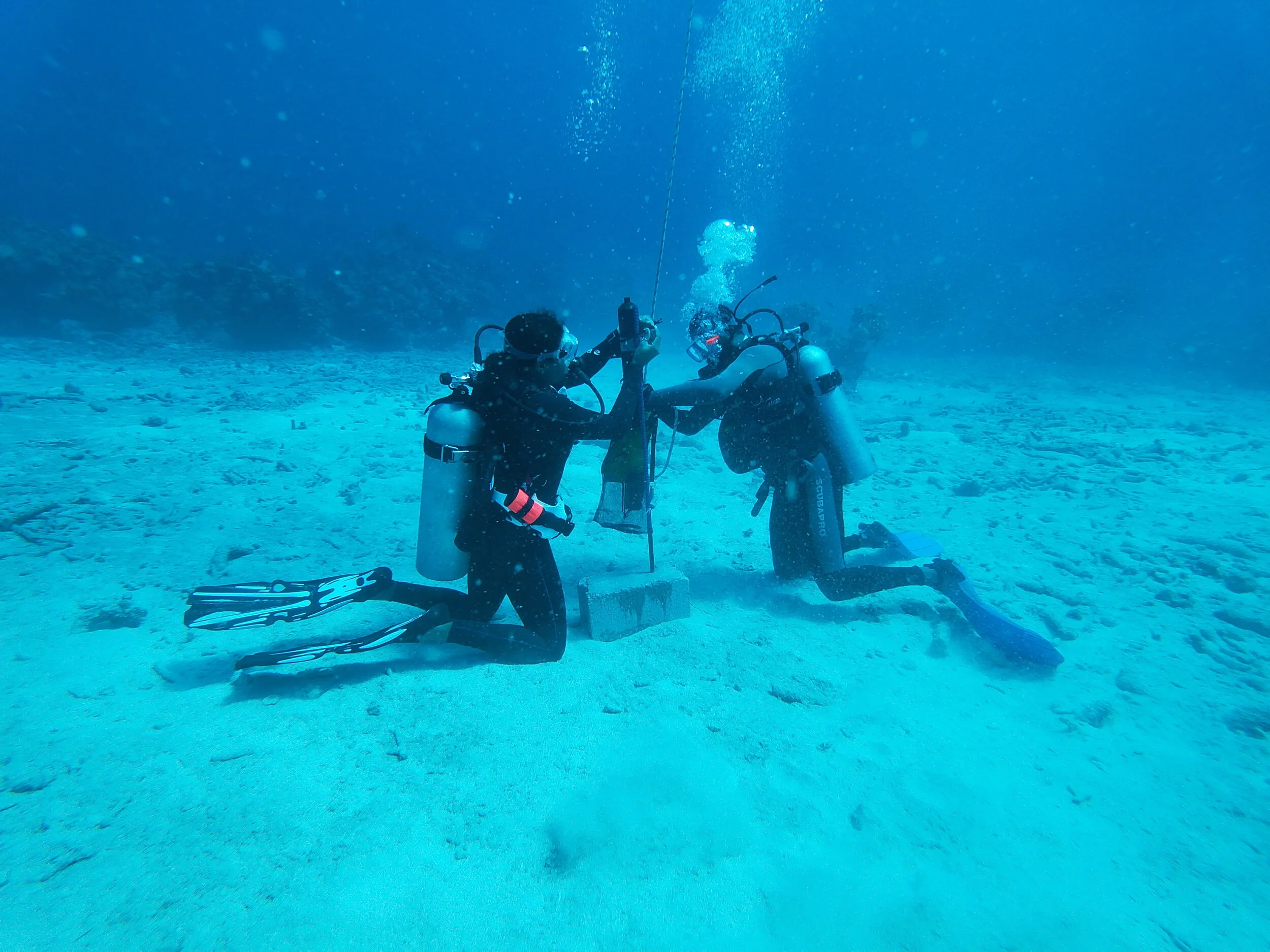Krista Sherman: Marine Biologist At Perry INstitute For Marine Sciences
Krista Sherman with a Nassau grouper recovering post surgery and processing. Photo by Rosie Poirier.
Tell us about yourself!
My name is Krista Sherman. I enjoy eating different cuisines and will try most things at least once. Asian & Mediterranean are two of my favorites on the savory side, but I have a sweet tooth and always enjoy a good dessert, especially if it’s chocolate! I’m an animal lover and a water baby. I began snorkeling as a child during Sunday afternoon beach sessions with my godfather, sister, brother and godbrother. I was always fascinated by the ocean, fish and other marine organisms and started doing my own reading as a kid and decided that’s what I wanted to do for my career. Currently, I’m a Senior Scientist for the Perry Institute for Marine Science and lead the Fisheries Research & Conservation Program.
Can you share more about your work on Nassau groupers?
My research and conservation work on Nassau groupers is aimed at helping to inform science-based policies to better manage the remaining populations and help them to recover. The research I conduct includes both local and international partners and ranges from monitoring their annual spawning aggregations (used for breeding) to investigating genetic population structure and connectivity. If you’re interested in learning more visit our website and you can keep up with project updates on social media @perryinstituteformarinescience and @nassaugrouper242.
How did you become interested in studying the ocean?
Innate curiosity and a love for being in the water led me to a career in Marine Science.
What do you wish everyone knew about the ocean?
It’s magical!
With your work, what do you hope to accomplish/discover/learn?
You don’t have to be a diver to be a marine scientist. For example, you may be interested in conducting labwork (e.g. examining species under a microscope or molecular biology), exploring deep-sea habitats via submarines or remotely operated vehicles, or really love analyzing large datasets. Science provides us with a way to better understand our environment and help to make informed recommendations and that’s what I hope my work will contribute to. However, even if you are not scientist, you have a very important role to play! That’s because WE (humans) are the ones that have to individually and collectively chose to implement science-based recommendations by doing the right things (e.g., not eating undersized fish or fishing during the closed season, protecting key habitats).
What is some of the best advice you have received from mentors? What advice do you have for young scientists, artists, and explorers?
Don’t compare yourself to others. Just do your best. My advice for young scientists, artists, and explorers is to figure out what you’re interested in and passionate about and pursue that. Take advantage of opportunities and don’t squander them.
Please share a favorite memory from your work/research!
Some of my favorite memories from fieldwork include: seeing fish and invertebrates I don’t see often (e.g. hamlets, blennies, nudibranchs) or some of my favorite species (e.g. spotted eagle rays 😊); trying to swim with whales (a mother and calf) in Long Island; having a massive great hammerhead swim beneath me while doing a manta tow along the Tongue of the Ocean in Andros; night dives (wish I got to do more of them!); and random boat and underwater dancing.
For more content and information, you can follow Krista on Facebook (@Krista Danielle Sherman) and on Instagram (@nassaugrouper242). Check out the organization’s website and Facebook/Instagram (@perryinsitituteformarinescience), and Twitter (@perryinstitute). They also have a YouTube channel!
Thank you for sharing with us! Keep inspiring others and being a leader.
We always love to be introduced to new ocean explorers. If there’s someone you’d like to see an interview from, send us your ideas!



